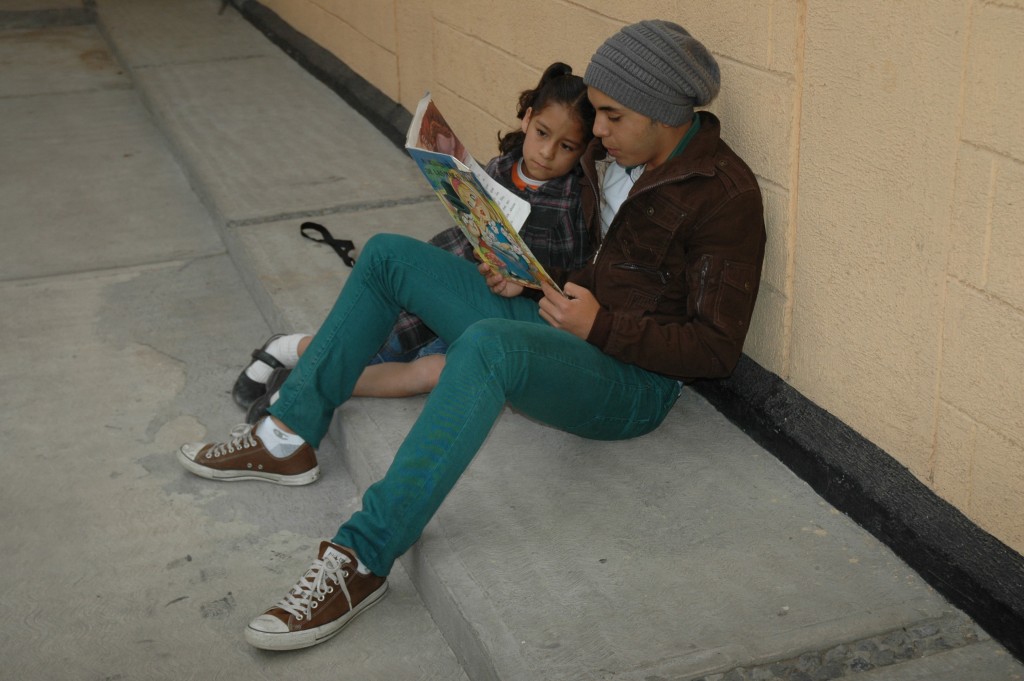 When you open a book and start reading, you’re probably thinking about the adventure or romance you’re about to reenter, or about the number of chapters you need to read for the class you’re taking, or maybe about the notes made in the margin by a previous reader. Is it really helpful to write “Yes!” next to every single sentence you agree with? Well, we all have our own reading styles. Some are just more stylish than others.
When you open a book and start reading, you’re probably thinking about the adventure or romance you’re about to reenter, or about the number of chapters you need to read for the class you’re taking, or maybe about the notes made in the margin by a previous reader. Is it really helpful to write “Yes!” next to every single sentence you agree with? Well, we all have our own reading styles. Some are just more stylish than others.
What you likely don’t think about is your right to read at all. For those of us who grew up in homes full of books, and for whom learning to read was pretty much a foregone conclusion, it’s easy to take reading for granted. But it’s worthwhile taking a moment to think about whether everyone in the world gets this opportunity, and about why they should.
When we think about human rights, we may think of things like life, liberty, and equality. We may think of freedom of assembly, or freedom of expression. We may think of basic material needs, such as adequate food, clothing, shelter, and medical care. All of these and more are, in fact, spelled out in the Universal Declaration of Human Rights, which was adopted by the United Nations General Assembly in 1948.
But the same document also declares cultural rights, among them the right to education “directed to the full development of the human personality.” It declares the right “to participate in the cultural life of the community, to enjoy the arts and to share in scientific advancement and its benefits.” Along with increasing access to education in general, boosting levels of adult literacy has been a principal focus of UNESCO’s Education Sector for many decades.
In the U.S., literacy rates have long been higher than the world average, thanks to a strong emphasis on education, including the public school movement. Literacy rates in Indiana are even higher than those of the nation as a whole. But according to the National Center for Education Statistics, eight percent of Hoosiers still lack basic prose literacy skills. And those folks in the eight percent are more likely to face other big challenges—poverty, imprisonment, mental health issues—all parts of a vicious cycle that makes addressing any one area, let alone all of them, a struggle. Literacy has the potential to help break this vicious cycle.
Studies have shown that ready access to the printed word not only improves children’s reading performance and helps to teach them the basics of reading, it also improves their attitudes about reading and causes them to read for longer periods of time. Nationwide, however, almost two-thirds of low-income families own no books of their own.
Empowering adults to read is just as important. For Charles Groves, age 71, of Machias, Maine, knowing the names on the packages he sees in the grocery store means he finally knows “what I want, and what I don’t want.” And for generations of future readers, having parents and grandparents who read also has a big impact. When children see the adults around them reading and writing, they’re more likely to become readers and writers themselves.
The UN’s stance on human cultural rights is very much in line with the philosophy of The Public Collection. By bringing works of art to the neighborhoods in which we live, work, play, and recover—and by stocking them continually with books that are free to borrow—we plan to do our part to ensure that all people can enjoy the richness of culture and the opportunity of education. It’s our hope that everyone in Indianapolis will take advantage of—and benefit from—this project.





